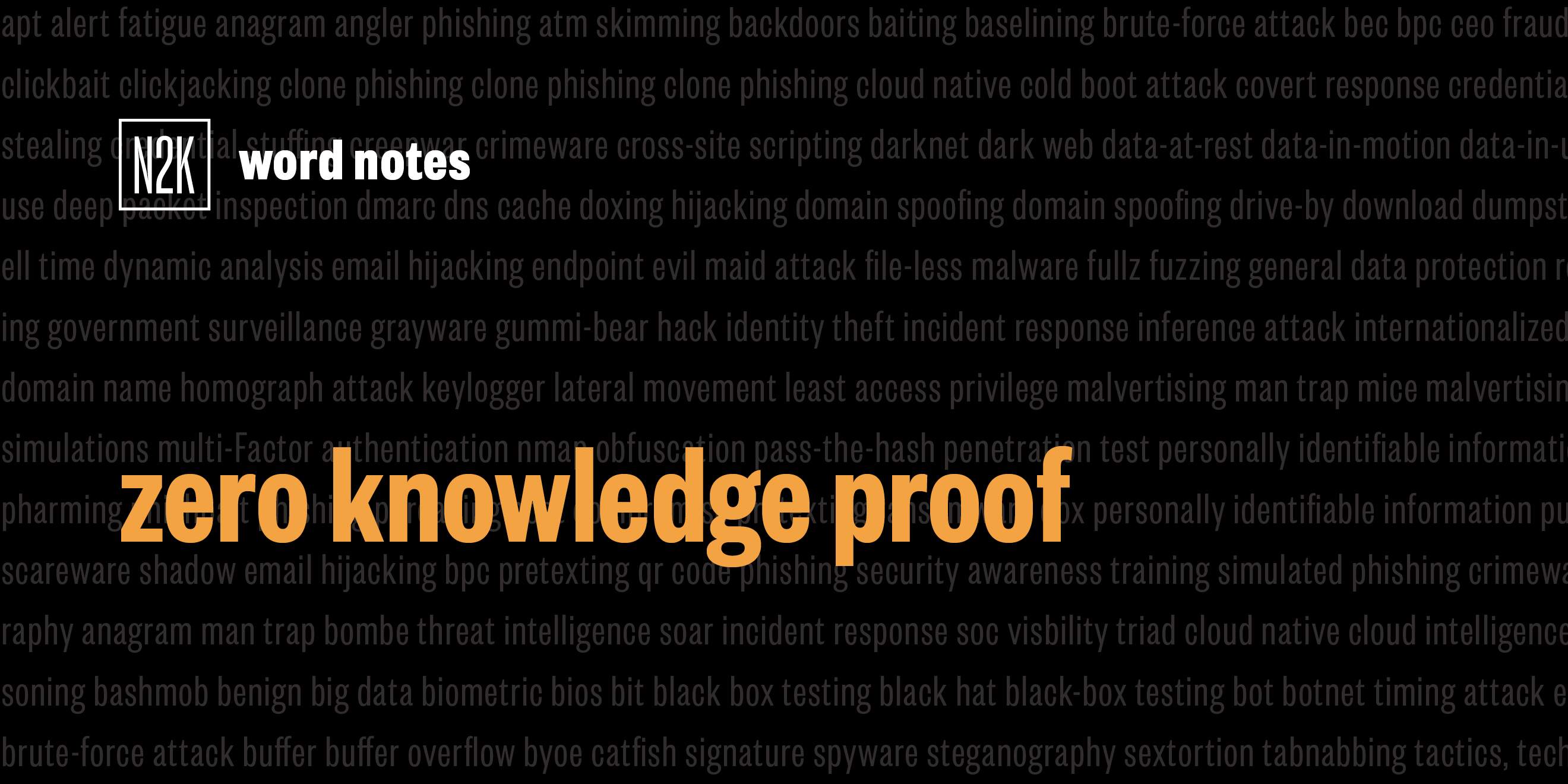
zero knowledge proof (noun)
Rick Howard: The word is: zero knowledge proof
Rick Howard: Spelled: zero as in nada, knowledge as in useful information, and proof as in xa rigorous and systematic argument that establishes the truth or validity of an assertion.
Rick Howard: Definition: A mathematical method, by which one party, the prover, can prove to another party, the verifier, that something is true, without revealing any information apart from the fact that this specific statement is true.
Rick Howard: Example sentence: In basic form, a zero knowledge proof is made up of three elements. witness, challenge, and response.
Rick Howard: Origin and context: A zero knowledge proof is a technique from cryptography, pronounced like photography, which is the art and science of code making. According to Wired's Lily Hay Newman, these zero knowledge proof techniques are mathematical methods used to verify things without sharing or revealing underlying data.
Rick Howard: They are probabilistic assessments, which means they don't prove something with complete certainty, instead, they use small pieces of unlinkable information to show that the validity of an assertion is overwhelmingly probable. Three researchers, Shafi Goldwasser, Silvio Micali, and Charles Rackoff, published the first paper on zero knowledge proofs back in 1985, called "The Knowledge Complexity of Interactive Proof Systems." Zero knowledge proof must be complete, meaning that if the assertion is true, the verifier will be convinced that it's true. Sound, meaning that if the assertion is false, the verifier will be convinced that it's false and finally, it must convey zero knowledge, meaning that the proof doesn't reveal any information about the assertion, just that it's either true or false.
Rick Howard: Nerd reference: In 2022, the staff over at the YouTube channel Computational Thinking provided an example of one zero knowledge proof using Sherlock Holmes and Dr. Watson.
Computational Thinking staff: Sherlock has two spheres, one blue and one red. On the other hand, Watson is colorblind. For Watson, both spheres look the same. Can Sherlock prove to Watson that he is not colorblind and can differentiate between the two spheres? Zero knowledge requires that Sherlock does not reveal to Watson which sphere is blue and which sphere is red. Watson takes the two spheres behind his back and he can choose to do one of the following. Keep the spheres as they are or switch them. Next, Watson shows the spheres to Sherlock. Sherlock must tell whether Watson switched the spheres. In this particular case, Sherlock must answer, switched. Of course, Sherlock might be lucky, so they repeat the protocol many times. If Sherlock always answers correctly, then Sherlock can distinguish the colors with a high probability. And none of Sherlock's answers reveal the color of the spheres.
Rick Howard: Word Notes is written and edited by me, Rick Howard, and the mix, sound design, and original music have all been crafted by the ridiculously talented Elliott Peltzman. We're privileged that N2K and podcasts like Word Notes are part of the daily intelligence routine of many of the most influential leaders and operators in the public and private sector, as well as the critical security teams supporting the Fortune 500 and many of the world's preeminent intelligence and law enforcement agencies. N2K strategic workforce intelligence optimizes the value of your biggest investment people, we make you smarter about your team while making your team smarter. Learn more at N2K.Com and thanks for listening..
